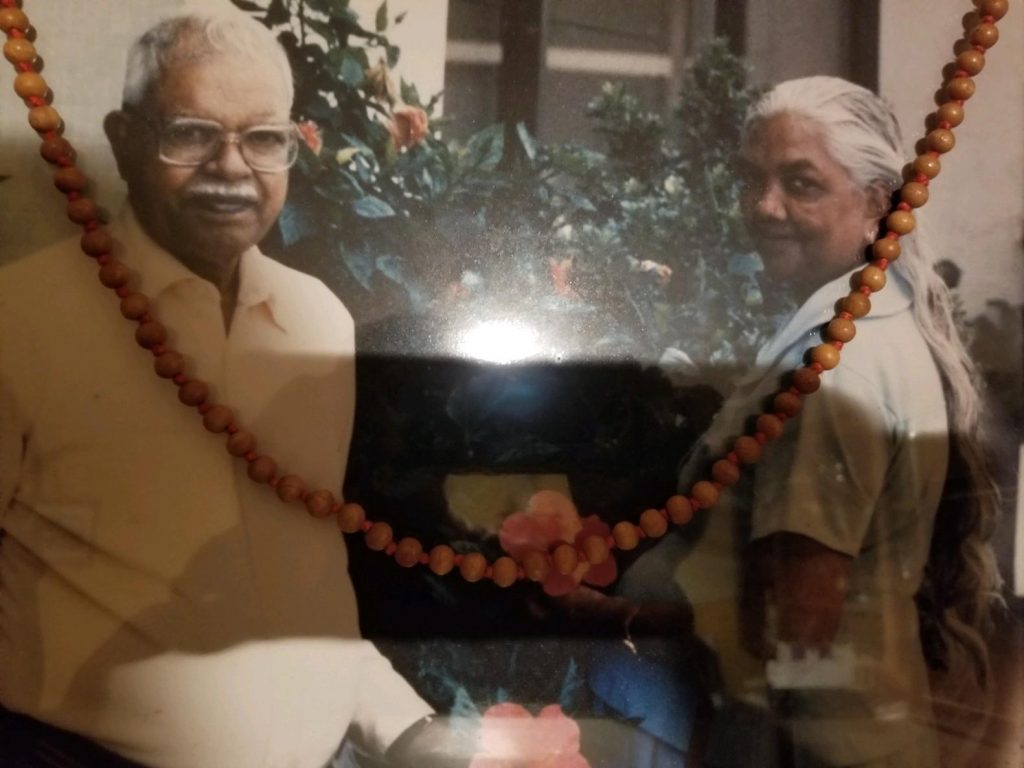As the writer Sham Moteelall penned, Marble, Grass, and Glass (2021), delves into the lives of Indian indentured laborers (also known as girmityas) bound to British Guiana. Although focused on his ancestors who were recruited for Guiana, it is applicable to all indentured recruited for plantations around the globe in the Pacific, Indian Ocean, Africa, and Caribbean. Some 1.2 million Indians were sent to overseas territories as girmityas to work on British, French, and Dutch colonies. A few hundreds were also sent to the Danish colony of St Croix, now a US territory.
In the book, Moteelall talks about the recruitment of his fore-parents as indentured laborers and the severity of their experiences (abuses) during recruitment, on board the ship that took them to Guiana, and on the plantations as well as their life experiences post indentureship through the end of colonial rule in 1966. His ancestors came to Guiana during different years from the mid 1800s thru the end of the century. Several of his ancestors or their kin were kidnapped and brought to Guiana. At least one participated in the 1857 Sepoy uprising, the first attempt of a revolutionary war for India’s freedom. That revolutionary ancestor, fearing execution, escaped to Guiana as an indentured laborer. Other ancestors signed up as indentured laborers to escape poverty or to avoid conflict among kin. Their intention was to return to mother India. But they all remained in Guiana making it their new home. They died and were buried on the plantations where they were bounded or worked.
As the writer notes, the indentured laborers or girmityas suffered tremendous hardships and abuses, including sexual abuse of the females.
As he narrated, many indentured died while still bound to the plantations, leaving orphans behind. One of his ancestors was an orphan. Some indentureds returned to India after completing their bondage. Some bought their freedom of the girmit (contract) with savings from indentureship. Others who survived the exploitative system stayed on purchasing land. A few agreed to do a second five year stint as indentured and accepted a plot of land in exchange for the return passage to India. The book is the story of the indentured ancestors of Sham Moteelall but it could as well serve as the story of anyone who is a descendant of indentureds. Indentured laborers were first recruited in 1838 and terminated in March 1917. Indentureship was abolished in January 1920 freeing all girmityas in British colonies.
Moteelall says that he spent many years researching and investigating Indian indentureship. He wanted to find out about the re recruitment of his ancestors and their lives in the colony of Guiana. “I have always been curious about my ancestral migrations”, he writes. He adds: “This curiosity began some forty years ago”. I embarked upon a preliminary search to gather further detailed information on this subject. It has been a slow and difficult process”. He collected narratives from his family members and put together the life stories of his ancestors.
It is not a history book but it is a book based on the factual stories told by people who lived a long time ago in far away places. He said he found bits and pieces of information from relatives and archival research and was able to verify their accuracy. He talked about his parents, uncles, cousins, and grand-parents. It is a great, well-written book highly recommended for reading to understand some of the horrors of indentureship. It is recommended for high school and college.
The book creates clarification and an understanding of what happened to indentured Indian laborers who were treated no better than slaves. He describes the indentured system as a “glorified system of slavery to enrich the British planters. It is a story of a servitude contract that resulted in life sentences for many. It was an atrocious system that reinvented and redefined slavery”.
He notes that the indentureds “endured and tolerated the punishments meted out to them. And through hard work, frugality, and sacrifices, they created a good life that offered peace and tranquility. We celebrate the indentured ancestors. We honor them through memories. And it is an honor to tell their collective stories”.
Sham Moteelall is a Guyanese. He was born in Upper Corentyne, Berbice. He passed GCE and became a chemistry and science teacher. He migrated to Minnesota to further his education. After his studies in agronomy, he became a businessman. He traveled back and forth between Guyana and the USA. His family members joined him in the US. His parents also lived with him for a decade in Minnesota where their ashes were buried.
In addition to being a businessman, Moteelall has been a motivational speaker and corporate trainer. He helps companies explore innovative ideas on improving their respective businesses. Moteelall has also been a farmer. His passion is for sustainable food production and finding creative ways to grow food from natural and biological processes.
